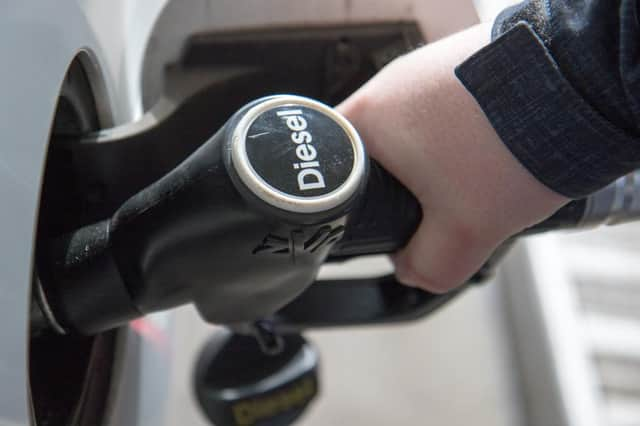Ask the experts: should I buy a diesel car in 2020?


If you’re looking for a new car in 2020, decisions need to be made about whether diesel has had its day – as sales of new hybrid and electric vehicles hit record highs.
According to the Society of Motor Manufacturers and Traders, sales of new cars in the UK dropped in November as demand for diesel vehicles fell sharply, but some motoring insiders feel they could still offer the best value.
The industry body reports that new diesel cars now account for only 23.6 per cent of the market, after being on a par with their petrol counterparts just two years ago.
Demand for the latest battery electric cars more than tripled to 4,652, while plug-in hybrids sales rose by 34.8 per cent to 4,362 cars; more than one in ten cars joining our roads in the UK are now either hybrid, plug-in hybrid or pure electric.
If you’re wondering whether to go for a diesel car, in the face of bans, taxations and scandals, it depends on your needs.
Although the industry insists that modern diesel is “a responsible choice for an urban driver”, demand has dropped in the wake of air-quality concerns and taxation changes, and particularly the Volkswagen emissions scandal in 2015 which focused consumer attention on the associated levels of nitrogen oxide and particulate emissions.
Tax for new diesel and company cars was raised in 2018 as a result, and in central London a new ultra-low emission zone has been established, which imposes a £12.50 daily charge on older diesels; tougher standards are coming in 2020 and the zone is set to be expanded in October 2021, while Leeds, Birmingham and Bristol are among the cities planning to roll out similar schemes.
The Society of Motor Manufacturers and Traders says on average diesel cars emit 20 per cent less CO2 than petrol cars, but it’s worth researching the model you’re considering buying, as tests have shown there can be huge variation in nitrogen oxide output between models.
So what about buying a diesel car in 2020? If you buy new, will it hold its value like it used to?
According to Auto Express, new diesel sales may have fallen but the used market has been less affected.
The writing is on the wall for both petrol and diesel cars as they enter their final lap: transport secretary Grant Shapps hinted in November the government may bring sales of new cars powered purely by petrol or diesel engines to an end by 2035.
But that’s still a long way off and, in the meantime, says CAR magazine, many drivers, “especially those doing long-distance trips and motorway miles”, will still find a diesel car better on their wallet, on account of its fuel economy.
Manufacturers from Porsche to Nissan have vowed to slowly phase out diesel – pundits say it could happen faster, but electric models aren't quite ready to plug the gap yet.
Volvo made headlines by pledging to ditch the solely combustion engine-powered car to protect the environment, reduce pollution, especially in our inner cities, and meet customer demands’ while, at the 2019Geneva Motor Show, Audi underlined its commitment to alternative fuels by only showcasing electric and hybrid vehicles at its stand.
Porsche confirmed in autumn 2018 it was shunning diesel engines and the sports car firm has suspended sales of diesels in the UK, while Toyota is phasing out its diesel models and Suzuki GBsaid two years ago that "fiscally diesel is already finished.''
However, if you’re looking at a second-hand vehicle, according to CAR magazine, it’s worth remembering that the fuel is chemically more energy-efficient than burning petrol.
“The good news is that modern diesel engines – those meeting Euro 6 emissions regulations, and forthcoming, even tougher EU7 limits – are impressively clean, with sufficient exhaust after-treatment built in to trap the nasties that give diesel a bad name,” writes Tim Pollard.
No matter what type of car you opt for, a personalised DVLA number plate from CarReg will help to make it the perfect model for you.